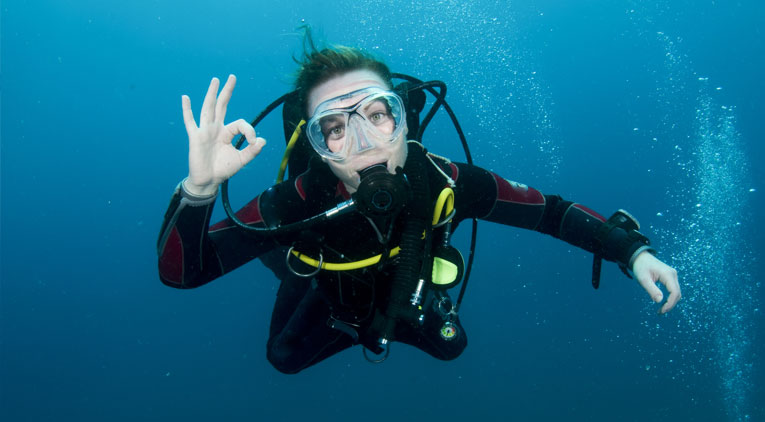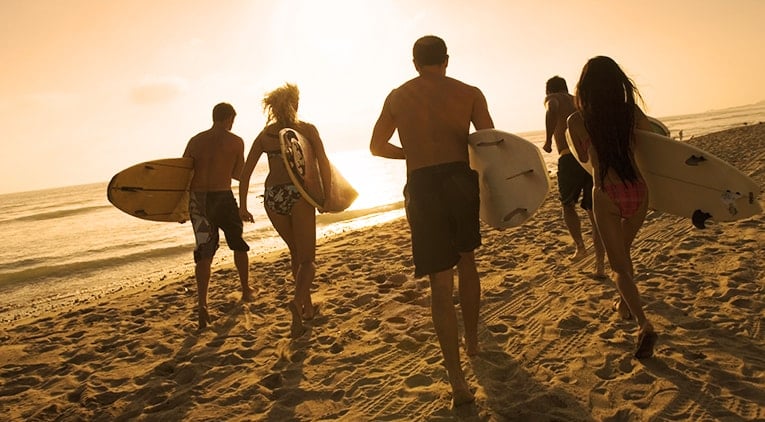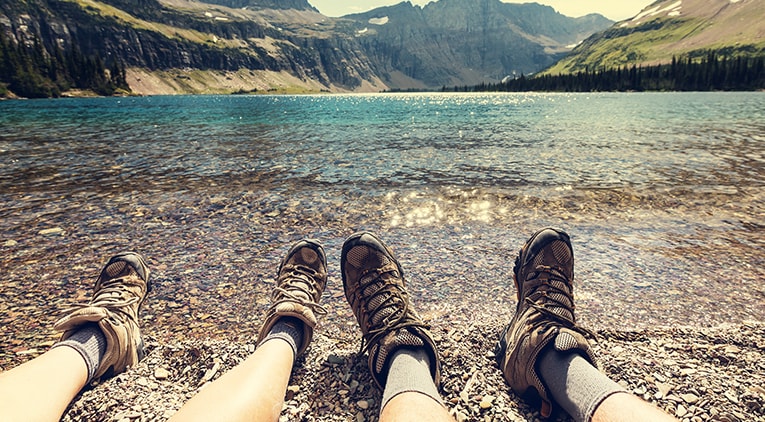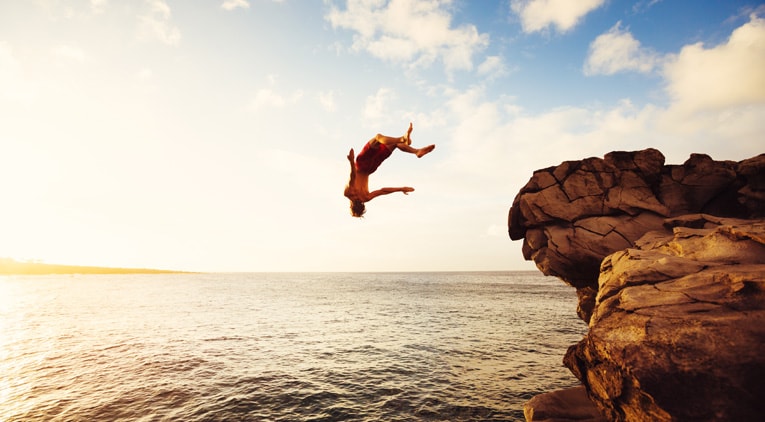

So, you’re off to Bali for the adventure of a lifetime? Exploring ancient temples, sipping on fruity cocktails, snagging market bargains, lounging in the sun for hours on end, and diving one or many of the incredible dive sites off its shores. It may be one of the best regions for diving south of the equator, but it can also be pretty dangerous for those not in the know. So, time to get in the know.
Here are six of the biggest dangers to be mindful of when diving in Bali.

Many Bali dive sites are renowned for their unpredictable currents, serving up some of the strongest and most erratic currents in the world. Waters that are calm and serene one day can be completely wild the next, and even experienced divers can get into trouble if they’re not careful. Bali experiences currents that will drag you downwards into deep ocean very quickly, and push you to the surface too quickly also, putting you at risk of decompression sickness. Its important to remain as calm as possible if you find yourself caught in a current. You should have a diving buddy and have been told what to do in these circumstances by your diving instructor. Do your best to keep your breathing regular and follow the advice you were given prior to the dive. Respect the power of the ocean and be sure you stay aware of all warnings on tides and currents. If you’re a bit of a diving greenhorn, only dive with reputable PADI-certified operators and follow their advice. They’re the experts, not you, despite how many travel guides you’ve read or YouTube videos you’ve watched.

Research, research, research! If you’re planning on diving in Bali with a company, do your research. And I don’t mean researching to find the cheapest deal. Most dive operators are totally legit, but there have been incidences of “companies” doing some pretty dodgy things, like using sub-par dive equipment, not following proper safety procedures, and basically putting people’s lives at risk. You need to research the standard of their equipment, both under and overwater and ensure your operator has a good reputation in this regard.
Make sure the operator and the instructors you go out with are all PADI-certified or hold an open water diving licence that is recognised in Australia, otherwise you won't be covered by most travel insurance companies. Do your research, speak to operators, speak to other divers, and go from there. You’re heading underwater – this is one time when you want to err on the side of caution.

There are countless dive sites around Indonesia, but not all of them are suitable for diving newbies. Don’t be an idiot and act like you know what you’re doing if you don’t. Diving is extremely fun, but it can also be dangerous especially if you’re out of your depth. Bali has an abundance of dive spots, catering to all abilities, so, choose the one that suits you. Don’t let that weird dude at the hostel talk you into going to his “secret dive spot” unless you know it’s safe and you have the skills to handle it. Being an inexperienced diver may mean you have to sacrifice some dive spots you were excited to see but take our word for it, this is better than being stuck underwater in a situation you can’t handle.
Buyuk Nusa Penida is great for newbies, the USS Liberty Wreck dive site is must-see for all underwater explorers, while advanced divers’ searching for their next watery adventure should head to The Magnet, home to scalloped hammerhead sharks, great hammerhead sharks, mobula rays, barracudas, and more.

Like a lot of tourist spots in Bali, the popular dive spots can get overcrowded, which will not only affect how much you get to see during your dive, but can also increase the danger of accidents while you’re underwater. Crashing into a fellow diver could be nothing but a small inconvenience but it could also be catastrophic if diving equipment becomes damaged in the process. In an overcrowded diving spot you also need to consider the marine life, high concentrations of people will likely disrupt the regular patterns of sea life and increase the risk of damage to corals and plants. Diving should be done with respect to the ocean and marine life so be mindful of where and when you book your dives.

One of the most magnificent things about diving in Bali is the sea life. Colourful fish, huge manta rays, sharks, sea snakes, vibrant coral. All of this and more, and it’s going to take your breath away. But be careful. This is their home, not yours, and not all creatures are friendly, particularly if you get up in their business and start poking around. Most diving accidents are caused by faulty equipment and human error, so there’s no need to be afraid, but be aware and respectful of the sea life. Use your common sense and always listen to the advice of your dive leader. If you’re told to steer clear of an underwater critter, do it.

Unless you want to be hobbling around for the rest of your holiday, wear appropriate coverage on your feet when you dive. Stonefish and sea urchins are common along the reef and seabed, and their spikes deliver a nasty sting if you tread on them, with stonefish stings even being potentially fatal without antivenom. If visibility is poor you’re unlikely to spot these guys on the seabed so don’t take the risk of ruining not only your dive, but your whole trip. Also, be careful of the coral. Not only will it deliver you a nasty cut or painful sting, you’ll probably injure or kill the unique underwater animal.

Diving in Bali is incredibly popular and as a developing tourist hub pollution and environmental issues are rife both on land and in the sea. There are issues with sewage runoff, plastic and rubbish pollution and destructive fishing practices in the seas of Bali. These issues may not factor into your dive, depending where your dive spot is, but its worth looking into reviews of diving zones in regards to these types of issues. If you do end up diving in an affected area it will not only have a negative impact on the quality and visibility during your dive, but your also opening yourself up to the possibility of infection and illness from the water.

I get it – you’ve arrived in Bali and you’re keen to get out and dive as soon as you can. Word of advice – give it 24 hours. Flying often dehydrates your body (particularly if you enjoy a few G&Ts on-board), putting you at greater risk of the bends. Besides, a flight often takes it out of you and leaves you feeling tired, something you definitely do not want to be when you dive. So, just chill for a day. Settle in, recharge, and take to the Bali waters when you’re fully refreshed. It’ll be worth the wait, promise.
Want more info on diving in Bali? Divezone and Dive The World have a heap of great info. If you’re heading to Bali, be sure to check out 1Cover’s Bali Guide.
 Want to save money while you’re out on the road? This is what you need to know.
Want to save money while you’re out on the road? This is what you need to know.
 Everyone can pick us from the moment they lay eyes on us. Why? Because of this.
Everyone can pick us from the moment they lay eyes on us. Why? Because of this.
 If you have ticked any of these off your list, then you’re our kind of traveller.
If you have ticked any of these off your list, then you’re our kind of traveller.
 Just as long as you understand that the normal rules – including gravity – still apply.
Just as long as you understand that the normal rules – including gravity – still apply.
Have a fun, safe & enjoyable holiday with our guide to staying safe in Bali.
1Cover’s UK Survival Guide is packed full handy hints, tips and tricks from those in the know.